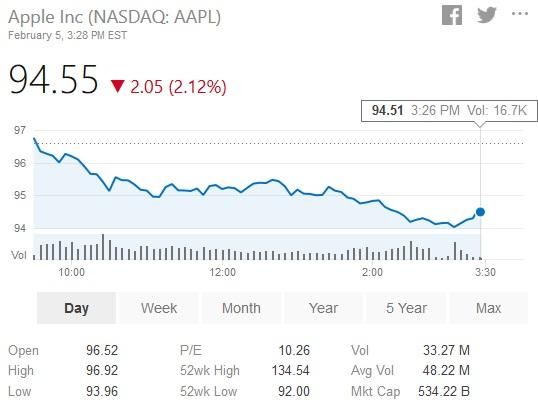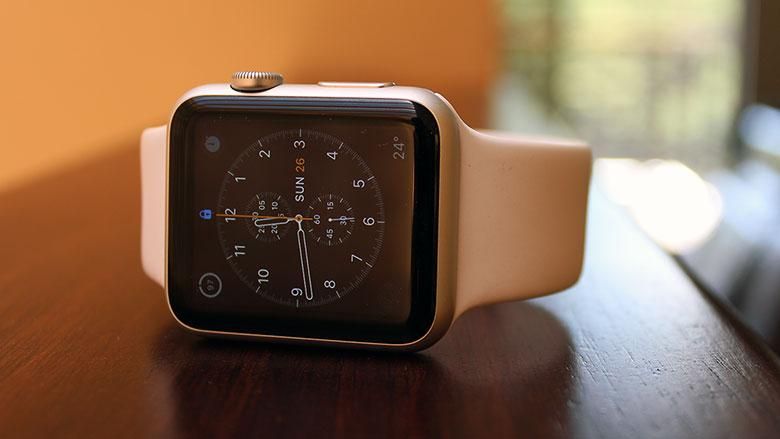It’s been a roller coaster of a week for Apple and Alphabet. The company which owns Google briefly took the mantle as most valuable publicly traded company, only to be leap-frogged by Apple again on the strength of iPhone, iPad, and Apple Watch rumors. Apple continues impressive performance as a profit generating engine, but the gaps in Apple’s armor are becoming more apparent as we watch the mobility market mature.
Cash is king
Just as buying a phone is often an emotional decision more than a rational one, trading stocks is also an emotional reaction. We want to claim some kind of meritocracy, but when creating company expectations, and evaluating company performance, a stock price can fluctuate as much from actual measurable performance as it can from the perception of that performance. Did Apple really do anything last week to warrant a stock surge, or did we see the price inflate because of a small rush on the news that another company had overtaken them as “most valuable”?
When it comes to mobility, Apple’s biggest competitor is actually themselves. The Android ecosystem occupies a larger share of the phone market, but no one company takes as large a slice of the pie, nor do any competitors produce as much revenue or profit. Apple is often in a position where the bigger fight isn’t against a Galaxy or LG, but against rumors and managing expectations of the iOS fan base.
Unlimited growth?
Companies have a responsibility to shareholders to generate profit. What I’ve never understood is how this has translated into a quest for the impossible: unlimited market growth. In nature we call unlimited growth a disease. In business when a company can’t demonstrate continued growth in a sector, that company is deemed a failure. Apple is an incredible example of a chilling conversation. To be sure, this is a company which is still growing, but reflecting a maturing market which is plateauing, Apple’s growth in mobility is also slowing. There is no company which consistently outpaces them. No company has found a magic recipe for growth in this market.
Tech enthusiasts are treated to regular doom and gloom predictions, and markets can flip on leaks and rumors, but how much of this is real?
There are some concerns…
Of course there are some concerns facing Apple. Tying so much of their economic prosperity to a market which is peaking is cause for concern. Cupertino has largely let the traditional computer/laptop arm of the business coast. We don’t see exciting developments there, we see Apple trying to migrate more of their customers from OSX to iOS. That’s been a shame for those of us who have been wanting a touchscreen MacBook.
Apple’s development process for new product lines is well guarded, approaching skunkworks levels of obfuscation, but the projects leaking out haven’t exactly inspired the same passion and discussion we see from competitors. An Apple electric car would be cool, but do they have the talent to fight self-driving cars from Google and Tesla. Apple could be developing some VR gear, but Cardboard for the iPhone is already available in the app store at the low end, Oculus and HTC are already moving to consumer release at the high end, and Microsoft is leaping to augmented reality with HoloLens.
Any companies making a ton of money on phones right now should absolutely be looking to diversify their portfolio. Apple has become a very conservative company though, and hasn’t truly defined a market since the iPhone. In a climate where tech iteration is accelerating, Apple’s process of waiting for a new technology to mature before implementing it themselves will place them farther and farther behind competitors. Taking the same approach to new markets like electric vehicles and VR could leave Apple in a vulnerable position for finding new revenue streams.
Validation or slowing momentum?
We shouldn’t underestimate Apple’s ability to validate a market. Cupertino didn’t invent or define the smartwatch, but the Apple Watch single-handedly tripled smartwatch sales. It wasn’t just positive news for the Apple Watch though. Consumers took watches more seriously after Apple announced its solution. There was a ripple through other manufacturers thanks to Apple’s visibility, and it paved the way for traditional watch manufacturers like Fossil and Tag Heuer to take this segment more seriously.
The window where one company can remain “on top” is getting schizophrenically short. Our parents and grandparents understood monoliths like IBM, but we exist in an era where one killer application, one novel feature, or one crummy processor can radically shift up market numbers. Following recent announcements, what do you think of Apple’s outlook? Are they a cheap phone away from breaking open a new sales base of customers? Should they be more public with R&D? Share your thoughts below.




